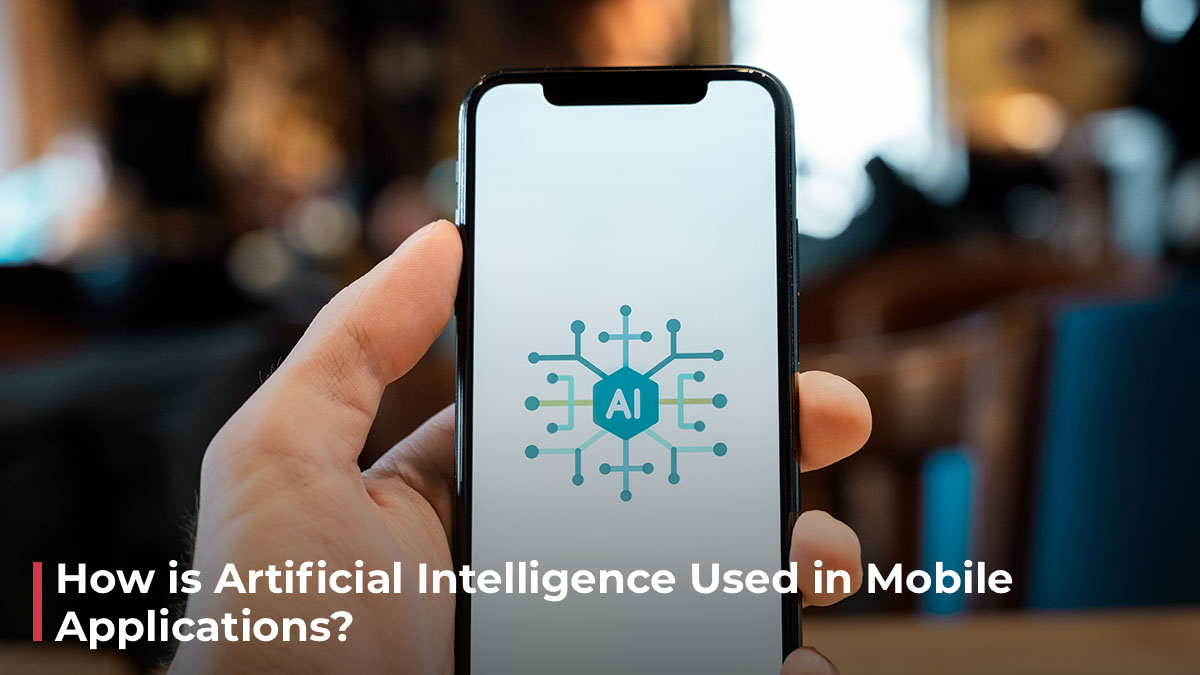Exploring the Potential of AI in Enhancing Mobile Apps
In recent years, artificial intelligence (AI) has emerged as a transformative force across various industries, and mobile app development is no exception. With the increasing demand for smarter and more intuitive applications, developers are turning to AI to enhance app performance and create personalized user experiences. In this post, we’ll explore how AI can be effectively integrated into mobile apps, discuss the challenges developers face, and look at the exciting possibilities AI offers for the future of mobile app development.
How AI Improves Mobile App Performance
AI technologies, such as machine learning, natural language processing, and computer vision, have the potential to revolutionize mobile apps by making them more efficient and responsive. Let’s take a closer look at some of the key ways AI can enhance the performance of mobile applications:
- Personalized User Experiences: By analyzing user behavior and preferences, AI can help create highly personalized experiences. For instance, AI algorithms can recommend content, products, or services tailored to individual users, thereby increasing engagement and satisfaction. This level of personalization is achieved by processing vast amounts of data and recognizing patterns that inform the app’s responses to user actions.
- Improved Efficiency: AI can automate routine tasks within apps, allowing them to operate more efficiently. For example, AI-powered chatbots can handle customer queries without human intervention, freeing up resources for more complex tasks. Additionally, AI-driven data analysis can optimize app performance by identifying bottlenecks and suggesting improvements.
- Enhanced Security: AI plays a crucial role in improving app security by detecting and responding to threats in real-time. Machine learning algorithms can identify suspicious activities by analyzing behavioral patterns and flagging anomalies, thus providing an additional layer of protection against cyber threats.
- Predictive Analytics: AI can analyze historical data to predict future trends and user behavior. This foresight allows developers to proactively address potential issues and optimize app features for better user retention and satisfaction. Predictive analytics can also help in targeted marketing efforts by identifying the right audience for specific campaigns.
Challenges in Integrating AI into Mobile Apps
Despite its potential, integrating AI into mobile apps comes with its own set of challenges. Developers must navigate these hurdles to fully harness the power of AI:
- Data Privacy Concerns: With AI relying heavily on data, ensuring user privacy and data security is a primary concern. Developers must implement robust data protection measures and comply with regulations like GDPR to safeguard user information.
- Resource Constraints: AI algorithms can be resource-intensive, requiring significant processing power and memory. This can be a challenge for mobile devices, which have limited resources compared to desktops or servers. Developers need to find a balance between AI functionality and device performance.
- Complexity of AI Models: Developing and integrating AI models into apps can be complex and time-consuming. It requires specialized knowledge and expertise in AI technologies, which may not be readily available to all development teams.
- Continuous Learning and Updating: AI models need to be continuously trained and updated to remain effective. This requires access to fresh data and the ability to quickly adapt to changes, which can be challenging in a fast-paced development environment.
Future Possibilities for AI in Mobile App Development
Despite these challenges, the future of AI in mobile app development is promising. As AI technologies continue to evolve, they unlock new possibilities for innovative app features and functionalities:
- Augmented Reality and AI Integration: The combination of AI and augmented reality (AR) can create immersive experiences in fields like gaming, retail, and education. For example, AI can enhance AR applications by providing real-time object recognition and interaction.
- Voice and Language Processing: Advances in natural language processing (NLP) are enabling more sophisticated voice assistants and language translation features. Users can interact with apps using voice commands, making the experience more intuitive and accessible.
- Emotion Recognition: AI is making strides in recognizing and interpreting human emotions through facial expressions and voice tones. This capability can be leveraged to create empathetic apps that respond to users’ emotional states, enhancing user engagement and satisfaction.
- Automation and Smart Assistants: AI-powered smart assistants can automate various tasks, from scheduling to managing smart home devices. As these assistants become more integrated into mobile apps, they offer users greater convenience and control over their daily activities.
Good to Know: The Impact of AI on Mobile App Development
As AI continues to permeate the mobile app landscape, it is important for developers, businesses, and users to understand its impact:
- For Developers: Embracing AI can be a game-changer for developers looking to create cutting-edge apps. However, it also requires a commitment to learning and adapting to new technologies, as well as investing in the necessary infrastructure and tools.
- For Businesses: AI-driven apps can provide businesses with valuable insights into customer behavior and preferences, enabling them to make data-driven decisions. This can lead to improved customer satisfaction and increased revenue.
- For Users: As AI enhances app capabilities, users can expect more personalized and efficient experiences. However, they must also be aware of data privacy concerns and the importance of safeguarding their personal information.
In conclusion, AI holds immense potential to transform the mobile app industry by enhancing app performance, personalizing user experiences, and unlocking new possibilities for innovation. While challenges remain, the continued advancement of AI technologies promises a future where mobile apps are smarter, more intuitive, and more responsive to the needs of users. As developers, businesses, and users navigate this evolving landscape, it is crucial to embrace the opportunities AI offers while addressing its challenges responsibly.
For more in-depth insights into AI and mobile app development, you can explore resources and discussions from leading tech platforms and forums. By staying informed about the latest trends and developments, you can ensure that your mobile app strategies remain competitive and effective in this dynamic field.
For more Information, Refer to this article.


































![Samsung’s Breakthrough Fuels Progress in Science and Industry: Interview How Samsung’s Engineering Feat Became a Catalyst for Scientific and Industry Advancement [Interview on Real Quantum Dots Part 2.]](https://www.hawkdive.com/media/samsung-tvs-and-displays-samsung-quantum-dots-technology-qled-tvs-quantum-dots-experts-interview-par-218x150.jpeg)